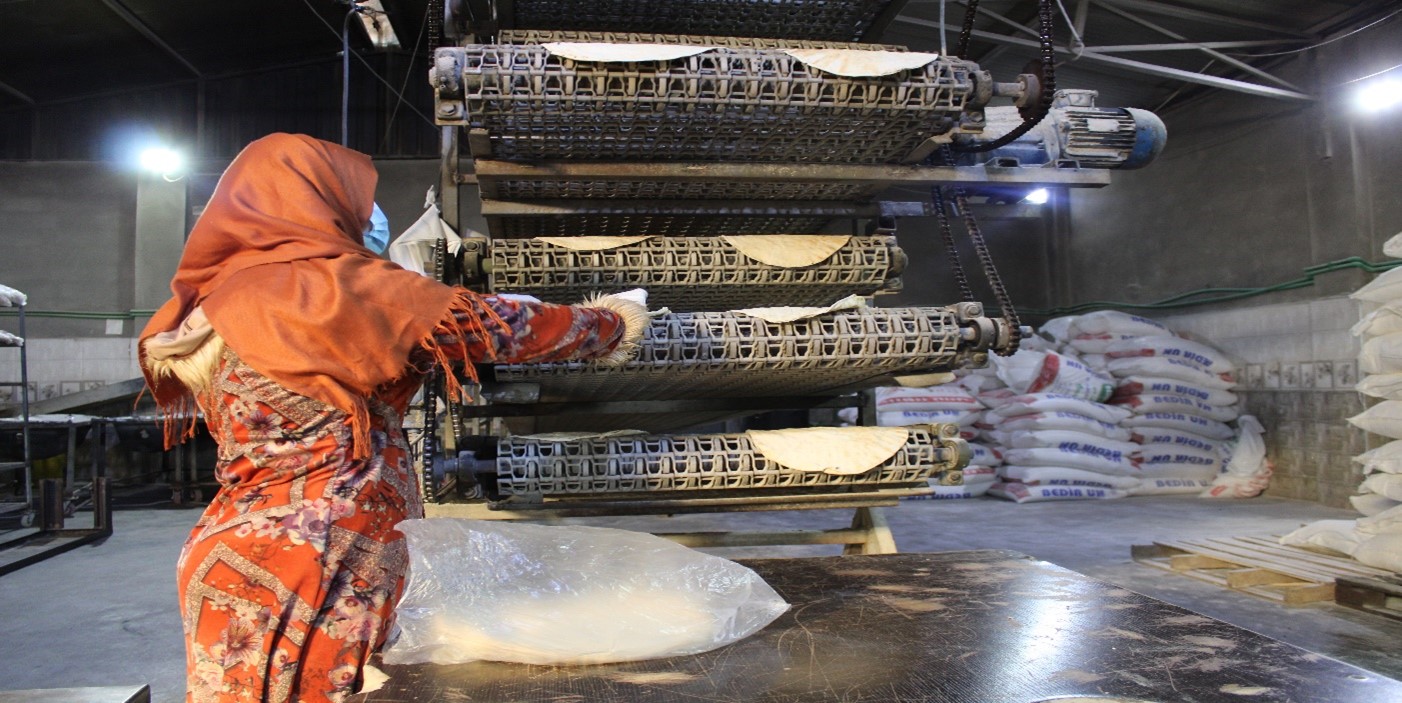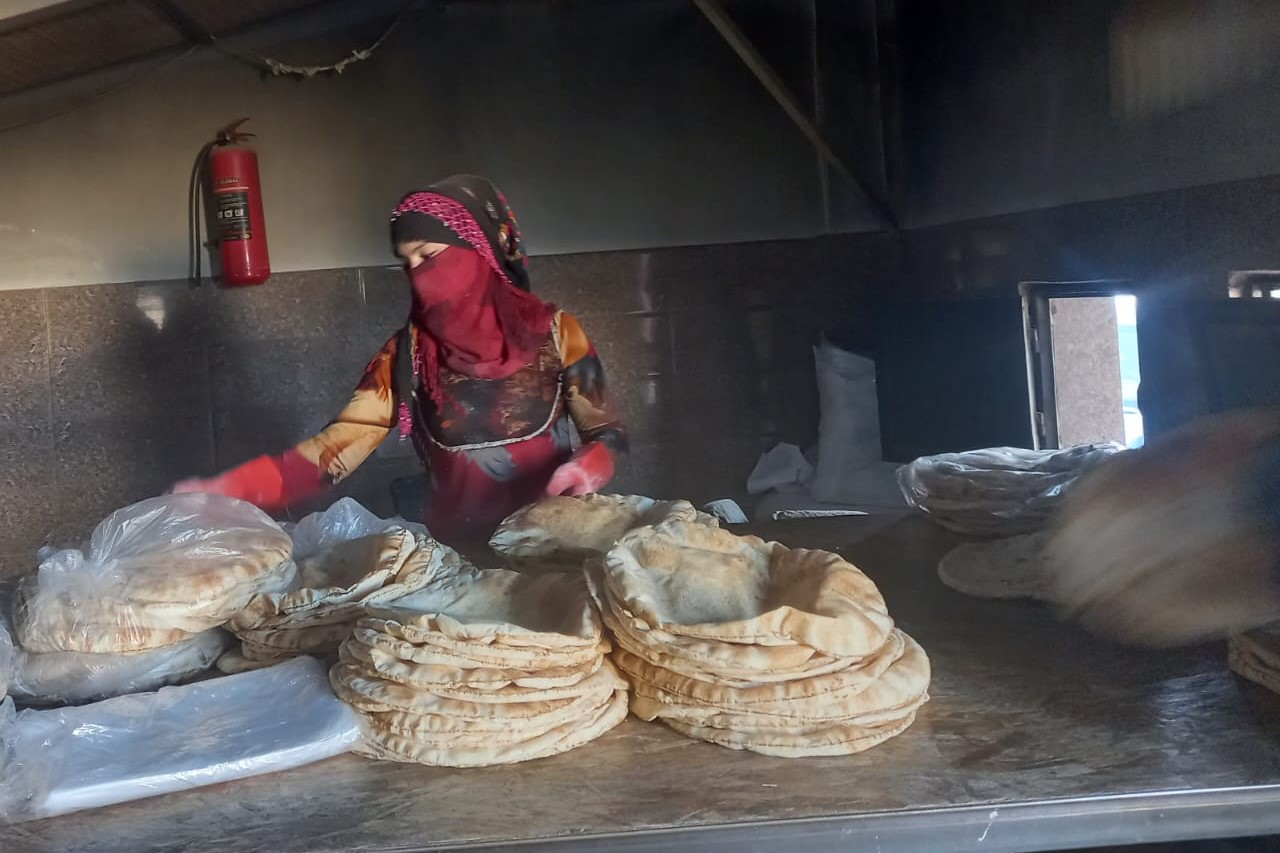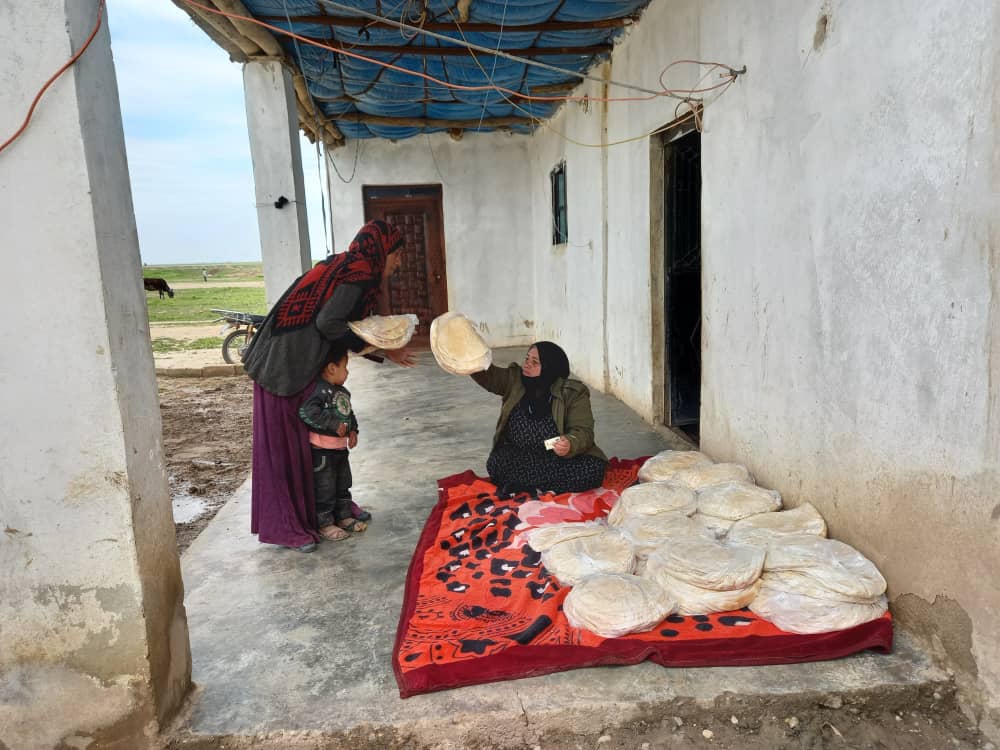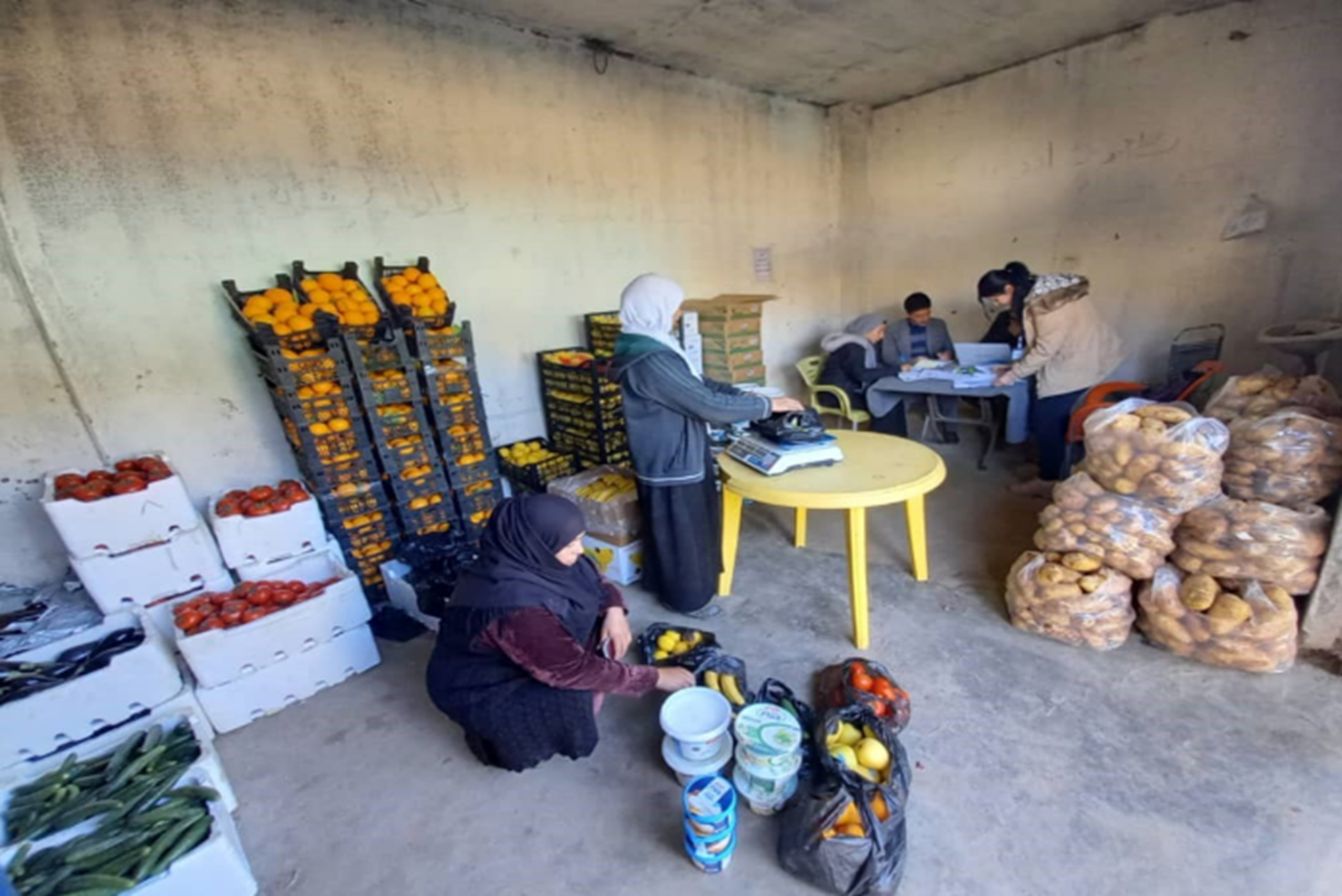Food security is one of the pillars of the Shelter and Food Emergency Response II program (SAFER II), which supports displaced people and host communities in northeast Syria. With funding from the USAID Bureau for Humanitarian Assistance, our teams have distributed more than 44 million free-of-charge loaves of bread at camps and informal shelters; made over 45 million loaves accessible to host communities at subsidized prices; and provided food vouchers to almost 9,000 food-insecure households.
Every step of the way, gender inclusion is a top priority for our team. Women play an important role in improving food security as bakers, storekeepers, distributors, and often as the primary cooks in their households.

Blumont partners with gender-inclusive local bakeries in northeast Syria that employ women and pay fair salaries.
Our local vendors and program partners are carefully selected to ensure equitable opportunities for women and men. As women face challenges to earning their own money and reaching economic independence, SAFER II prioritizes women-led businesses and businesses that give women fair job opportunities and salaries.
The SAFER II team mentors and provides trainings for women shopkeepers, bakery workers and bread distributors who are supporting their families and taking on empowering, nontraditional roles. Topics include gender-based violence and sexual exploitation to ensure women are informed and know of resources available to them.

Intisar earns a livelihood while contributing towards food security in displacement camps and host communities
Intisar the baker
Intisar, a member of the local host community, shared her story of the transformative impact that employment opportunities can have. After leaving an abusive marriage, Intisar moved in with her sister’s family and began working at a SAFER II-partner bakery. There, she found economic independence, stability, and a sense of dignity and respect. Working alongside other women, Intisar has built meaningful friendships and a newfound sense of confidence in her abilities. Today, she is proud to support her children and contribute to her sister’s household.

In Khazna’s village, around 430 households have access to bread at a reduced price thanks to SAFER II. Working as a bread distributor, Khazna is known for her promptness and good communication.
Khazna the bread distributor
Partnering with the SAFER II program has also given new opportunities to Khazna and her family. She works at a bread distribution point, selling bread provided by SAFER II at reduced prices to her local community. Khazna has become a trusted vendor to the families in her town, and she is proud of the positive impact that bread distribution has had on the community. Selling bread has also given her stability after years of displacement – she is now the primary earner in her family and can pay for food, medicine, and her daughter-in-law’s prenatal healthcare.
“I am proud of myself, as a woman at this age, that I can work to help my family,” Khazna shared.

Hazneh’s partnership with SAFER II helps her secure a source of income, and the food vouchers used at her store improve food security in the community.
Hazneh the shopkeeper
Hazneh and her daughter Solin run a small shop where they sell fresh produce from nearby farms to support their family of eight. Hazneh manages day-to-day operations while Solin assists with bookkeeping. Their shop was selected as a vendor for SAFER II’s food voucher activities because of their good quality products, reliable service, accessible location, and gender inclusivity. According to Hazneh, her work and partnership with SAFER II have been a source of relief. By accepting food vouchers, Hazneh can sustain her profits, which help provide for her family, pay for her husband’s cancer treatment, and make home repairs. At the same time, she is helping the community access diverse, nutritious foods.
Women like Intisar, Khazna, and Hazneh are more than vendors or bakery workers – they are the backbone of their families and the SAFER II program itself. Through their hard work and dedication, they contribute to promoting food security in their communities while shattering gender norms that can hold women back from making decisions and earning money.
As Hazneh put it, “Men are no longer the only ones who can work, but rather we work together with one goal. My self-esteem is higher. I feel empowered.”



